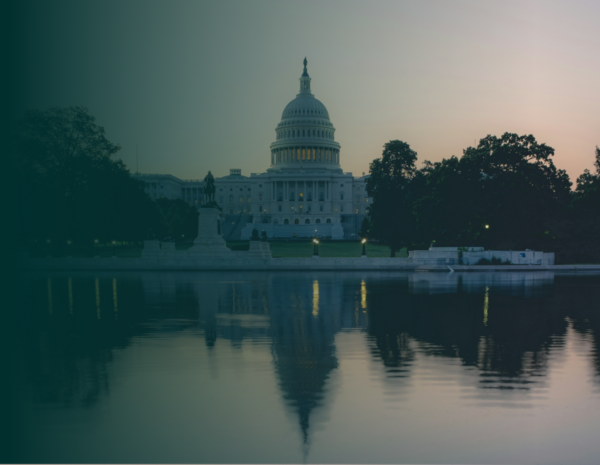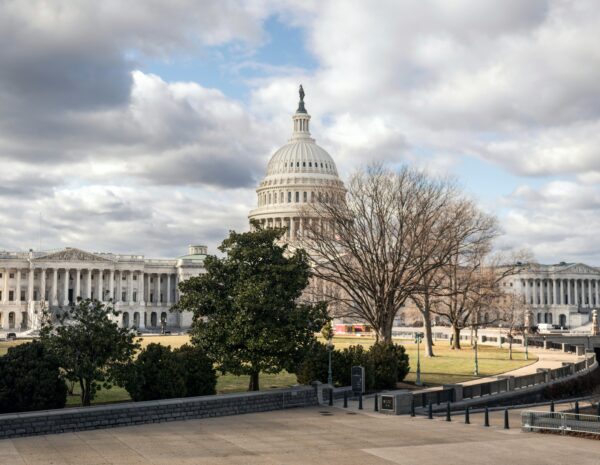The post 2024 End-of-Session Report: Illinois appeared first on Plural Policy.
]]>Illinois state legislators returned to Springfield this January following a productive 2023 session highlighted by action on issues in the national conversation including abortion rights and book bans. Governor Pritzker’s national profile has grown steadily since becoming Governor in 2019. He has developed a reputation for big spending and taking on national “culture war” issues.
Legislators began their work this session knowing they’d need to pass another annual budget, pick up some work that didn’t get finished in 2023, and take on new challenges like inflation and immigration. This work was due to be completed by the end of May, leaving lawmakers just under five months to tackle many priorities.
In this report, we detail the key outcomes of Illinois’s 2024 legislative session. Read on for a breakdown of what the General Assembly achieved this session, and what issues may need to wait until 2025.
The Makeup of the Illinois Legislature
Over the past decade, Democrats in the Illinois legislature have steadily grown their majority in the House of Representatives while maintaining a majority in the Senate. With no regular elections held between the 2023 and 2024 sessions, the makeup of the legislature was nearly identical when lawmakers reconvened in January.
Voters will have the opportunity to assess the work of the past two sessions in November as nearly one-third of Senate seats and all House seats are up for election. While overall party control is unlikely to shift, it’s worth watching to see if the size of Democrat’s majorities shrinks or continues to grow.
Get Started With Plural to Monitor the Illinois Legislature
Top public policy teams in Illinois trust Plural for their legislative tracking needs. In the world of public policy, it’s all about sorting through the noise to get to what matters.
With Plural, you’ll only get exactly what you need, and none of what you don’t. Plural users:
- Access superior public policy data
- Are the first to know about new bills and changes in bill status
- Streamline their day with seamless organization features
- Harness the power of time-saving AI tools to gain insights into individual bills and the entire legislative landscape
- Keep everyone on the same page with internal collaboration and external reporting all in one place
Create a free account or book a demo today.
More Resources for Illinois
The post 2024 End-of-Session Report: Illinois appeared first on Plural Policy.
]]>The post Freedom To Read Acts: How State Legislators Are Fighting Back Against Book Bans appeared first on Plural Policy.
]]>Since 2021, opponents of book bans have fought them at the state and local levels. Recently, opponents of book bans have shifted into the offensive as legislators in many states have filed “Freedom to Read” bills. Across jurisdictions, specific “Freedom to Read” bills vary in scope. Overall, they aim to protect access to materials that may be challenged due to partisan or doctrinal disapproval.
Illinois HB 2789
Illinois was the first state to pass such a law when Governor Pritzker signed HB 2789 in June 2023. HB 2789 requires the State Library officials to adopt the ALA’s Library Bill of Rights across Illinois. Generally, the Library Bill of Rights protects access to challenged literature. Under HB 2789, any Illinois library’s refusal to adopt these policies could result in a loss of state funding.
States That Have Introduced or Passed “Freedom to Read” Legislation
Our research team used Plural’s advanced search capabilities to analyze the issue. We found that legislators in 12 states and Congress introduced 19 “Freedom to Read” bills. See the full list here. While Illinois is the only state to have passed this legislation into law, Maryland HB 785 appears close to becoming law.
At Plural, we use our AI-powered tools to identify legislative trends before they become national news. It can be fascinating to watch these trends develop and see how they motivate new legislative activity. In the case of book banning, increased efforts to challenge books garnered significant attention. This seems to have bolstered the “Freedom to Read” movement. We will continue to monitor these competing trends, and you can too using Plural.

More Resources for Illinois
The post Freedom To Read Acts: How State Legislators Are Fighting Back Against Book Bans appeared first on Plural Policy.
]]>The post Understanding Illinois’s Proposed Social Media Law with Plural appeared first on Plural Policy.
]]>
It can be surprising to see both Republican and Democratic-controlled states moving in the same direction on legislation. But this is exactly what is happening when it comes to regulating children’s social media use. In recent years, many states have acted to regulate or restrict the use of social media by minors. This includes California, Texas, Ohio, and Arkansas, among others. Regulating children’s social media use is proving to be a uniting, bipartisan issue.
Just this week, Governor DeSantis signed Florida HB 3 into law. The new law, passed by Florida’s overwhelmingly Republican legislature, is expected to face legal challenges. If it survives, HB 3 would ban children under 14 from using social media. It would also require parental permission for 15 and 16-year-olds.
At the same time, Illinois’s Democratic House of Representatives is also advancing a bill that would regulate children’s activity online. HB 5380, known as the Parental Digital Choice Act or Sammy’s Law, advanced out of the House Consumer Protection Committee in mid-March. It is is expected to be voted on by the full House soon. Below, we use Plural’s AI capabilities to better understand HB 5380. How does Illinois HB 5380 fit within the bipartisan trend of regulating children’s social media use?
Summarizing HB 5380: The Parental Digital Choice Act
Plural provides access to both source-provided data and insights unlocked by our industry-leading, AI-powered models. As seen below, the AI summary typically adds clarity, context, and readability that can often be missing in source-provided summaries.
Illinois HB 5380: Source-Provided Summary
Creates the Let Parents Choose Protection Act. Provides that the Act may be referred to as Sammy’s Law. Provides that, before August 1, 2025, or within 30 days after a service becomes a large social media platform after August 1, 2025, a large social media platform provider shall create, maintain, and make available to any third-party safety software provider a set of third-party-accessible real time application programming interfaces, including any information necessary to use the interfaces, by which a child, if the child is 13 years of age or older, or a parent or legal guardian of a child, may delegate permission to the third-party safety software provider to: (1) manage the child’s online interactions, content, and account settings on the large social media platform on the same terms as the child; and (2) initiate secure transfers of user data from the large social media platform in a commonly used and machine-readable format to the third-party safety software provider. Sets forth disclosure requirements to the child and the parents or guardians of a child; requirements of third-party safety software providers; and liability of third-party safety software providers. Provides that a violation of any of the provisions of the Act is an unlawful practice under the Consumer Fraud and Deceptive Business Practices Act. Amends the Consumer Fraud and Deceptive Business Practices Act to make a conforming change. Effective June 1, 2025.
Illinois HB 5380: Plural AI Summary
The bill is proposing the following:
- Require large social media platforms to provide real-time APIs to authorized third-party safety software providers. This will allow parents/guardians to delegate permission to these providers to manage children’s online interactions and transfer user data.
- Define requirements for third-party safety software providers to access the APIs, including:
- Being solely engaged in Internet safety
- Only using user data to protect children from harm
- Only disclosing user data as permitted
- Disclosing how they operate and collect info to enable informed consent
- Provide liability protection for social media platforms that comply with the bill.
- Allow the Attorney General to enforce the bill under the Consumer Fraud and Deceptive Business Practices Act.
- Amend that Act to specify violations of this bill as unlawful practices.
- The bill would take effect on June 1, 2025.
In summary, the key proposals are mandating social media platforms provide access to third-party safety software providers to help parents manage children’s accounts and protect them from harm, with regulations and enforcement mechanisms.
How Does Illinois HB 5380 Compare to Other State Efforts?
HB 5380 does not go as far as legislation from other states seeking to implement a firm ban on the use of social media by minors of a certain age. Regardless, there are key similarities. HB 5380 would require social media companies to make significant changes to their platforms. For this reason, social media companies and their coalitions have opposed these efforts.
It’s likely that the Illinois House will vote on HB 5380 in April. If successful, it will then pass on to the Senate after that. You can follow upcoming activity on HB 5380 and discover related social media regulation proposals in Plural.
Get Started With Plural
Plural is the policy tracking tool of choice for policy pros looking to monitor social media laws, including Illinois HB 5380. Create a free account or book a demo today!
More Resources for Public Policy Teams
Key Benefits of AI for Lobbying & Advocacy
Want to be able to explain the benefits of artificial intelligence for lobbying and advocacy? Everyone is talking about AI. And we get it, it’s not simple to understand. But as an AI-powered organization, Plural is here to help you get the most out of advancements in AI to make your job as a policy […]
2025 Legislative Committee Deadlines Calendar
Staying on top of key deadlines is manageable in one state, but if you’re tracking bills across multiple states, or nationwide, it quickly becomes overwhelming. That’s why we created the 2025 Legislative Committee Deadlines Calendar. Stay ahead of important dates and download our calendar today. Get started with Plural. Plural helps top public policy teams get […]
End of Session Report: Florida 2024 Legislative Session
The 2024 Florida legislative session saw significant activity in the realm of insurance and financial services, reflecting key themes of consumer protection, market stability, and regulatory modernization.
The post Understanding Illinois’s Proposed Social Media Law with Plural appeared first on Plural Policy.
]]>The post Public Policy Brief Template appeared first on Plural Policy.
]]>Policy briefs are concise, written documents that provide policymakers with a clear understanding of an issue and suggest policy options based on research, analysis, and evidence.
When effective, policy briefs can be used to advance your organization’s goals, influence decision-making, position yourself or your organization as a thought leader, and more!
Need help getting started? Download our fully-customizable policy brief template and start writing your effective policy brief today!
The post Public Policy Brief Template appeared first on Plural Policy.
]]>The post 2024 Legislative Sessions Calendar appeared first on Plural Policy.
]]>Keep track of key dates in the 2024 legislative sessions calendar across all 50 states, plus Puerto Rico and U.S. Congress. Add them directly to your calendar today!
Having a hard time keeping up with the many important legislative dates across the states? Subscribe to our U.S. Legislative Sessions calendar and you’ll always know what’s happening.

Here are four options to access Plural’s 2024 Legislative Sessions Calendar. Choose the one that’s best for you:
- Google Calendar: Add the calendar directly to your Google Calendar using this link.
- Outlook or Other Calendars: Add the calendar as a public calendar through Outlook or other calendar applications. (Outlook instructions)
- View Online: View and bookmark the calendar online here.
- Download a PDF: View and download a PDF of session start dates and expected adjournment.
A few things to note:
- The majority of legislative sessions begin within the first two weeks of January and end between late March and mid-May.
- 15 states are scheduled to have significantly shorter sessions than in 2023. Only 4 states are scheduled to have significantly longer sessions.
- Louisiana, Mississippi, New Jersey, and Virginia will enter 2024 with the most new legislators after those states held regular legislative elections this fall.
- 4 states (Montana, Nevada, North Dakota, and Texas) only host regular sessions during even-numbered years, and do not have a regular session scheduled for 2024.
- 4 states, Puerto Rico, and the US Congress meet throughout the entirety of the year and do not generally have a typical end-of-session adjournment scheduled.
More Resources for Public Policy Professionals
The post 2024 Legislative Sessions Calendar appeared first on Plural Policy.
]]>The post ESG Legislation in the First Six Months of 2023 appeared first on Plural Policy.
]]>What is ESG Investing?
Environmental, social and corporate governance (ESG) is an investment strategy involving the consideration of a company’s environmental impact, social impact and governance history. These considerations are used to determine whether and where they will invest funds. ESG is also referred to as socially responsible investing or sustainable investing.
Interest in ESG investing has grown in the private sector. As a result, many large investing firms have begun to offer information about the impact of investments. This offers flexibility for investors to put their money towards “better” investments. The European Union (EU) has been the epicenter of ESG investing. The EU has taken steps to improve corporate transparency and aid ESG. For example, the EU increased reporting requirements for financial firms and companies.
ESG Legislation and Regulation
Regulatory action on ESG investing in the United States had been sparse. However, there has been an increase in legislation on ESG investing. This growth has occurred at both the state and federal levels. The trend is driven by recent actions by the Biden administration as well as Republicans’ focus on the so-called “culture wars.”
Over two-thirds of U.S. state legislatures have considered anti-ESG legislation in 2023, and 14 states have enacted legislation restricting the use of ESG factors in public investments and procurements. On the other side of the debate, just one pro-ESG bill has become law and only 11 states have even considered such legislation. While consumer demand for ESG investing has grown, the data in this report shows a wave of anti-ESG legislation rising to challenge that trend.
The Plural team sought to better understand legislation regarding ESG investing. To do so, we analyzed the 2023 legislative sessions of all 50 states, US Congress and Washington, DC. This data is up-to-date as of July 19, 2023.
Key Findings
ESG investing has become a prevalent topic of discussion in state legislatures across the country. Understanding the state-of-play in these debates will allow you to be better prepared for their next iterations.
Overall, it’s unclear how states will progress in this space as well as how new laws will impact our economy at-large. At Plural, we’re committed to increasing government transparency. This involves shedding light on laws under consideration and analyzing their impact on our communities.
The post ESG Legislation in the First Six Months of 2023 appeared first on Plural Policy.
]]>The post A Look at Electric Vehicle Policy in 2023 appeared first on Plural Policy.
]]>A Growth in Consumer Demand for Electric Vehicles
Consumer demand for EVs has grown rapidly. A decade ago, EVs accounted for less than 1% of total car sales. In 2021, they accounted for nearly 5% of total sales. Legislators across the country are racing to enact policy to accommodate this growth.
Plural’s Analysis of Electric Vehicle Policy
Harnessing Plural’s unmatched legislative data, our team analyzed legislation surrounding EVs so far in 2023. Read our report to see our findings.
Electric vehicle policy is a growing trend. These bills may affect the pace of EV transition and the automotive industry’s impact on the environment. Using Plural’s data, it’s clear that the first six months of 2023 have been the busiest for EV policy in history. These changes will drive electric vehicle policy development through the rest of 2023 and into next year. Understanding the state of play at this moment is important to prepare for that activity.
The post A Look at Electric Vehicle Policy in 2023 appeared first on Plural Policy.
]]>The post End-of-Session Report Template appeared first on Plural Policy.
]]>If you don’t report it, it didn’t happen, right? And if you can’t find the data you need to document all of your work throughout the session, you can’t report on it.
Creating a legislative report is key to proving the impact of your role, your team and your organization. It showcases the tangible results of your work to your board, stakeholders and community members.
Need help getting started? Download our end-of-session report template today!
The post End-of-Session Report Template appeared first on Plural Policy.
]]>The post Legislation Impacting Transgender and Nonbinary Rights and Visibility in 2023 appeared first on Plural Policy.
]]>So far in 2023, the partisan divide over gender identity, especially within education and healthcare settings, has generated a significant increase in legislation impacting transgender and nonbinary communities.
The research team at Plural is committed to monitoring legislative trends throughout the country. As we analyzed the 2023 legislative sessions, we were particularly surprised by the volume of bills targeting transgender and nonbinary rights. We leveraged Plural’s legislative data to better understand this trend. The data presented in this report is up-to-date as of Monday, June 26, 2023.
The post Legislation Impacting Transgender and Nonbinary Rights and Visibility in 2023 appeared first on Plural Policy.
]]>The post Stakeholder Mapping Tool appeared first on Plural Policy.
]]>Need help getting started? Download our free, fully-customizable stakeholder mapping visualization tool and supercharge your stakeholder engagement strategy!
The post Stakeholder Mapping Tool appeared first on Plural Policy.
]]>






